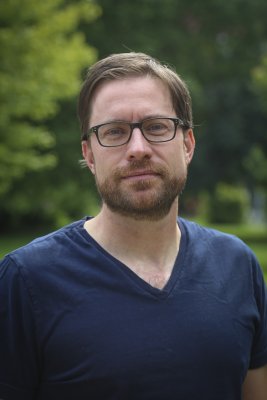Robert Brenneman

Professor of Criminal Justice and Sociology, Director of Criminal Justice and Restorative Justice Program
What drew you to teach at GC?
I was looking for a college that combines practical faith with a commitment to peace and justice.
What do you love most about teaching GC students?
My classroom is always diverse. There is no single “typical Goshen student” and this means that there are always multiple perspectives in the room. It also provides me with the unique challenge of drawing all students into the discussion and challenging everyone to be an active listener, even when the person speaking has a different perspective than my own.
What is your favorite teaching moment at GC?
During a peacemaking course called “Violence/Nonviolence” I invited a colleague to speak to the class about Cesar Chavez, the famous nonviolent activist from the farmworkers’ movement in California.
The students had just finished reading a book about the movement and my colleague, Richard Aguirre, gave a powerful presentation about faith and activism that concluded with another story of successful organizing for justice in Elkhart County. It was one of those moments where past and present come together and youth and elders are able to see that they can learn from and inspire each other.
How do you incorporate GC’s core values into your lessons/classes?
My main contributions to Goshen’s core values are in the areas of “peacemaking” and “transformative justice.” There is plenty of room for improvement in our justice system and I try to inspire my students – especially CJRJ majors – to look for ways to actively humanize our justice system so that every single person with whom they come into contact feels like they have been treated with dignity and respect.
Finally, I am inspired by Goshen’s mission statement that says we will be a community that cultivates “joy, growth, and purpose.” I’m always on the lookout for ways to incorporate joy in the classroom and to help students think about preparing for a calling, not just a job that pays the bills or a career that allows them to move up.




